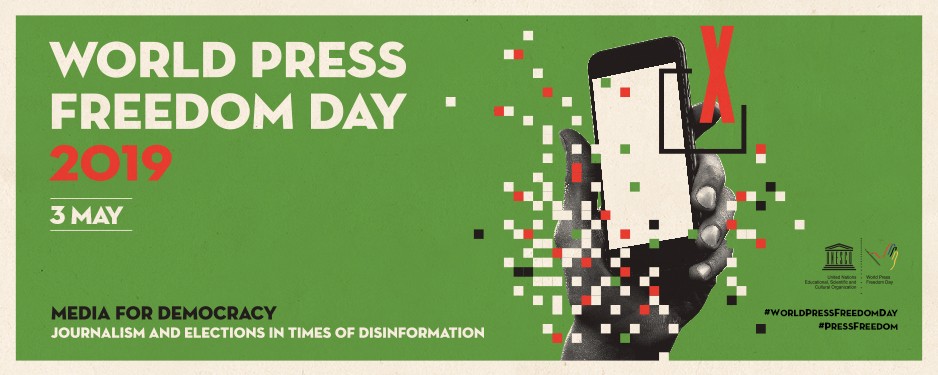April 23, 2019
In this month’s entry in Voqal’s grantmaking blog series, Director of Grantmaking Brenda Sears celebrates the upcoming World Press Freedom Day by highlighting three Voqal grantees that are helping build a more socially equitable media landscape.
The Nazis controlled less than three percent of Germany’s newspapers in 1933. At that time, Hitler regularly spoke about the lugenpresse – a word which roughly translates to lying press. Over the next decade, the Nazis drove half the newspapers out of business and seized control of half of the remaining newspapers, with a circulation of 21 million. The remaining privately owned and independent newspapers only had a circulation of 5 million, operated in strict compliance with government press laws and published material only in accordance with directives issued by the Ministry of Propaganda.
The First Amendment to the United States Constitution was written long before the rise of Nazi Germany. However, the founding fathers knew that people in positions of power sometimes abuse that power. They knew if a free press was not explicitly protected, people in power could tightly control the flow of information and deny access to alternative sources of news. They knew a healthy democracy requires a watchdog to obtain and dispense information.
Hitler had a clear strategy to destroy the credibility of the media to silence his critics. There are some disturbing parallels between that strategy and what we are witnessing today, which is why Voqal supports an independent media ecosystem that is open, participatory and inclusive. In honor of World Press Freedom Day, we highlight three grantees that exemplify this media ecosystem:
Brave New Films
Brave New Films develops multi-media short videos to educate audiences about social concerns and address social injustices by prodding audiences to reflect and take action. Brave New Films has a track record of content creation for use by a broad coalition of grassroots organizations.
City Bureau
City Bureau is a journalism lab in Chicago. It cultivates reporters from areas of the city that are traditionally not reported on or that are misrepresented in the media. City Bureau’s exciting long-term goal is to create a paradigm shift in which community-centered reporting and civic engagement are standard practice in the media industry.
Hoodoisie
Hoodoisie is a bi-weekly radically-politicized, live and livestreamed news show. Each episode is educational and entertaining. Activists and artists discuss current events and social issues and radical doers and thinkers are featured. Audience members often join in to challenge or contribute to the perspectives being presented.
The media is not perfect. Politicians who are sowing seeds of distrust in the media are merely exploiting a weakness that the press has unfortunately created. The consolidation of media outlets leaves ownership in the hands of fewer and fewer people. There are still too many voices and too many stories that go unreported, unheard and misrepresented. The 24/7 news cycle and the desire to be first with breaking news rather than to be right with accurate facts has led many people to discount the information being presented.
Nazi Germany shows us just how important freedom of the press is to society. We must continue to fight to uphold this right. At the same time, mass media needs disruption. The three organizations highlighted above are advocates for this reform. They are encouraging an increase of the role of citizen journalism, promoting the incorporation of alternative media into the larger discourse, using mass media to promote democratic ideas and turning passive audiences into active participants.
